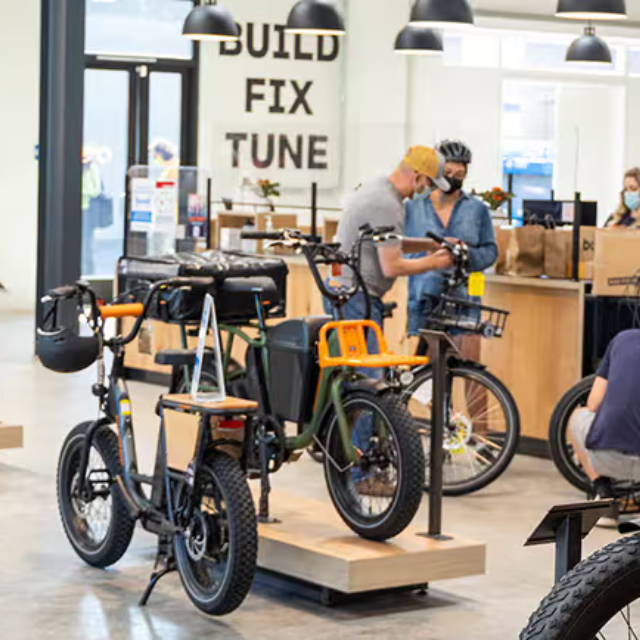How Upway Is Powering the Circular Future of E-Bikes
Written by: Rémy Rossi | April 12, 2025 | Time to read 5 min
The wheels are turning in the circular economy of e-Bikes. Here’s a deeper dive into the importance of circular economies and how Upway is leading the change.

More about the Author: Remy Rossi
Rémy Rossi is a bike writer, mechanic, and educator who got his start in community-based bike shops and co-ops. With a decade in the industry, he still wrenches on bikes when he can and plays bike polo on a fixie.

The importance of circular economies
Extending product lifetimes and reusing existing parts are key objectives in circular economies. There are great success stories from metal scrap, landfill gas conversion, second-life batteries, and reusable cups at concerts that transform sustainability goals into actual businesses. As it’s been said before, the circular economy isn’t just theory or hand-wavy ideas— this sustainable model is already being implemented and making a difference with examples across many industries.
E-Bike market & challenges

However, consumers may not have as much confidence in used e-Bikes because they are technical products and still more expensive than standard bikes. That’s where Upway comes in, sourcing e-Bikes, professionally refurbishing them, and providing a warranty to offer consumers peace of mind. Solving the hurdle of trust in second-hand e-Bikes is a critical element to help keep the circular economy model operating smoothly.
Upway promotes the circular economy of e-Bikes

Electric bikes are a significantly more sustainable form of transportation than cars, but they still come with a carbon footprint. Nearly 70% of the carbon footprint of an e-Bike comes from its initial production and the transportation to where it will be sold. Reconditioning and reselling an e-Bike distributes this footprint over multiple owners and extends its longevity and usability.
Upway sources electric bikes from top brands, bike shops, and individuals, and our team of professional mechanics refurbishes them at the UpCenters in New York and Los Angeles. Models are sold online for up to 60% off retail prices, and every e-Bike comes with a one-year warranty.
🤝 Looking for a sweet deal?
Get an even better discount when you sell your old electric bike!
Click here for a price estimation!
Buy-in & collaboration in the circular economy

Upway recently partnered with North American retailer Rad Power Bikes to promote the circular economy of e-Bikes. The Upway x Rad Power Trade-In Program allows riders to trade in their used e-Bike and upgrade to a new Rad Power model at a more affordable price. The used e-Bike will be transported to an UpCenter where it’s reconditioned and prepared for sale, supporting the circular economy and accessible prices for consumers.

Upway is a huge proponent in increasing the availability of spare parts for e-Bikes, making even more repairs possible to extend the bike’s lifespan. A German study, entitled Circular Business Models for Remanufacturing in the Electric Bicycle Industry, reveals that the e-Bike market faces a bigger challenge than the conventional bike market in this regard because of such frequent innovations, new models, and a lack of spare parts availability for older models. Refurbishment can help prolong an e-Bike’s life even before end-of-life processes like proper battery disposal and bike recycling even enter the conversation.
Key Takeaways
- Upway Extends E-Bike Lifespans: By reconditioning used electric bikes, Upway reduces waste and carbon emissions while making e-Bikes more affordable and accessible, offering up to 60% off retail with a one-year warranty.
- Building Trust in Second-Hand E-Bikes Is Crucial: Used e-Bikes can be intimidating for consumers due to technical concerns. Upway solves this by sourcing quality bikes, performing professional refurbishments, and backing each sale with a warranty.
- The Circular Economy Needs Industry-Wide Support: Partnerships like Upway x Rad Power Bikes and efforts to improve spare part availability show how collaboration across retailers, manufacturers, and policymakers can strengthen the circular e-Bike ecosystem.


